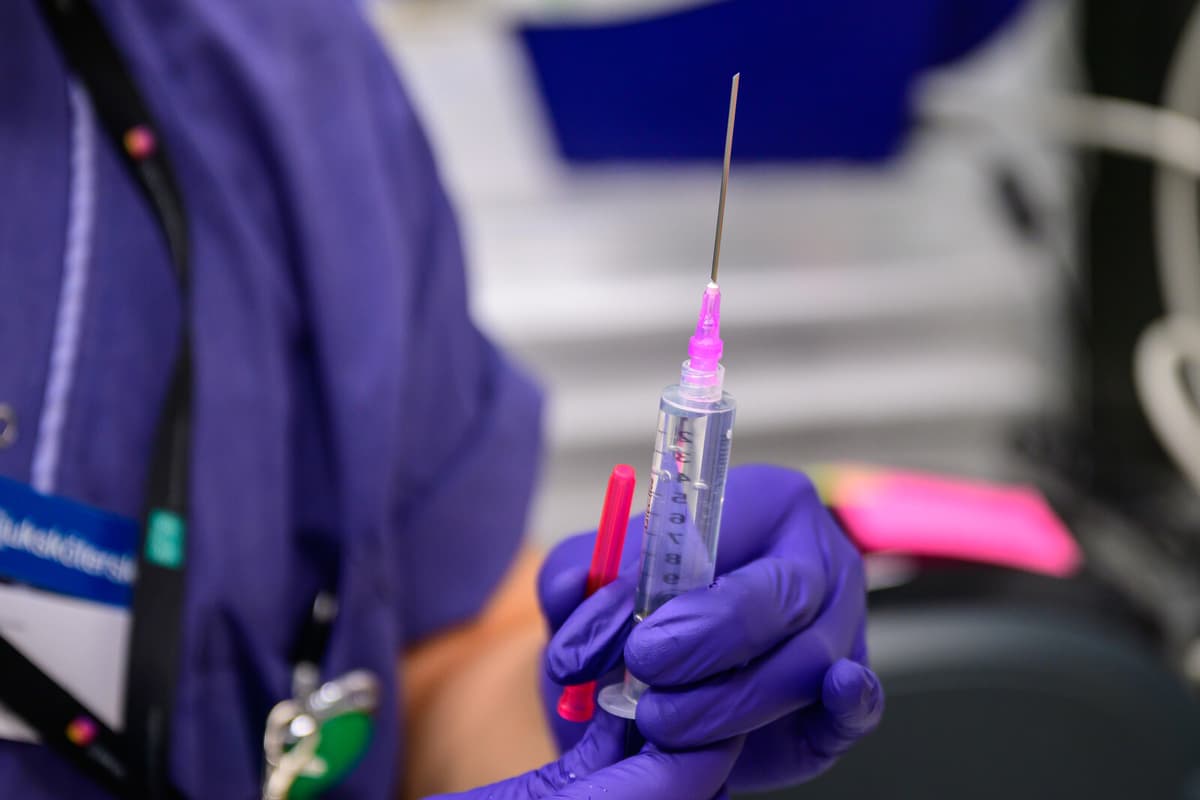Despite the fact that the customs agreement between the EU and the USA has been concluded, a number of unresolved issues remain, including the question of customs duties on medicines, where the EU and the USA have not yet reached an agreement. Even though the EU has agreed on a ceiling of 15 percent for customs duties on medicines, the US Trade Minister Howard Lutnick recently indicated that medicines not manufactured in the USA will be subject to "powerful" customs duties.
Largest export country
Something that worries Jessica Martinsson, CEO of Sweden Bio, the trade association for the life science industry, which represents over 300 member companies in Sweden in research, development, and production of medicines and medical technology.
The largest export country for the companies' products is the USA, and many member companies are now expressing great concern for the future, she says.
The USA has previously been the obvious choice for collaborations, investments, and launches. Swedish life science is an industry where large, long-term investments are required, and many companies are struggling to survive. Now they risk getting it tougher economically due to the customs duties, says Jessica Martinsson.
However, few of the member companies are considering moving operations from Sweden to the USA. None of them have made such a decision so far, according to Jessica Martinsson.
Additionally, the President of the USA, Donald Trump, has sent a letter to 17 major pharmaceutical companies, including Astra Zeneca, in which he urges the CEOs to lower the prices of prescription medicines in the USA. The pharmaceutical companies have 60 days to lower the prices, otherwise, they risk being penalized, according to the letters that Trump has published on the platform Truth Social.
Focus on other markets
In the pharmaceutical industry with global production chains, chemicals, substances, and equipment, the uncertainty in itself can be a worry, according to Jessica Martinsson.
Moving and replacing some of these components is complicated because it usually requires new approvals of processes. The establishment time for a new factory in the USA is longer than an American presidential term, she says.
Moving to the USA would also be associated with significant costs for companies that have their operations in Sweden, and in that case, they would also need to carry out redundancies.
Instead, we are now focusing on other export markets than the USA, such as the EU and Asia, says Jessica Martinsson.
Ebba Blume/TT
Facts: Some pharmaceutical companies in Sweden with USA exports
TT
Pfizer is an American company, but has a strong presence in Sweden with research, clinical studies, and medicines that are exported to the USA. In Strängnäs, Pfizer has a biotechnology facility for the production of pharmaceutical substances and vaccines.
Cytiva in Uppsala manufactures equipment that purifies biological medicines. Most of the insulin produced in the world is dependent on deliveries from there.
Swedish-British Astra Zeneca has significant operations in Sweden with research in Gothenburg and production in Södertälje, where they produce biological medicines and operate one of the world's largest tablet factories. Nearly 70 percent of Sweden's pharmaceutical exports come from Astra Zeneca.
Recently, Astra Zeneca presented a record-large investment package of 50 billion dollars in the USA. The package includes, among other things, a new pharmaceutical factory in the state of Virginia.
Currently, Sweden is investigating a number of measures, including tax incentives to invest in research within the industry. A proposal for investigation will be presented in January 2026.
Source: The Researching Pharmaceutical Companies (Lif), the Government Offices, and Reuters.






